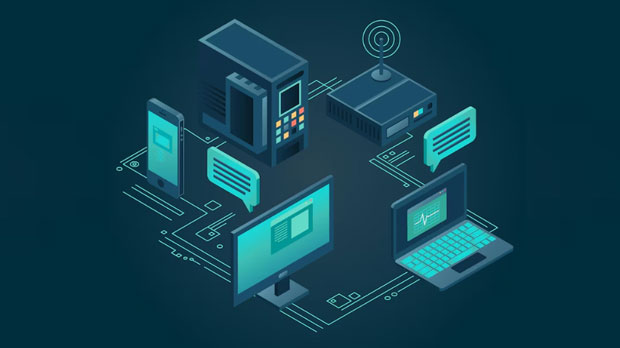When it comes to choosing proxies for online activities such as browsing anonymously, web scraping, or accessing geo-restricted content, two main options come up: cheap proxies and free proxies. Both offer distinct advantages and drawbacks, but deciding between them requires a deep understanding of their functionalities and use cases. In this article, we will analyze the differences, pros, and cons of cheap proxies and free proxies, helping you make an informed decision based on your needs and requirements. 1. Understanding Proxies: What Are They?A proxy server is an intermediary server that sits between a user and the internet. It forwards requests from users to websites, allowing users to mask their real IP addresses and appear as if they are browsing from a different location. This serves various purposes such as maintaining anonymity, avoiding IP bans, or accessing restricted content.2. Free Proxies: The Allure and Limitations2.1 What Are Free Proxies?Free proxies are services offered without any cost to users. These proxies are typically provided by third-party companies or community-driven projects. Users can access the proxy servers without having to pay, which seems appealing for individuals or businesses looking to save costs.2.2 Advantages of Free Proxies- Cost-Free: The most obvious advantage is that free proxies come at no cost, which is ideal for users who need basic proxy services without any financial commitment.- Ease of Access: Free proxies are easy to find and generally come with little setup, which can be convenient for occasional users or those testing proxies for the first time.2.3 Limitations of Free Proxies- Speed and Reliability: Free proxies tend to be slower and less reliable due to a lack of investment in infrastructure. With many users accessing the same servers, bandwidth can become congested, resulting in a poor browsing experience.- Security Risks: Many free proxy providers do not have strict security protocols in place. Using free proxies can expose users to malware, data breaches, or even identity theft. Some free proxies log user activity for malicious purposes.- Limited Locations: Free proxies often have a limited number of IP addresses and geographical locations to choose from. This can be problematic for users who need proxies from specific countries or regions.- Frequent Downtime: Free proxy services can experience frequent downtime due to overuse and lack of maintenance. This can disrupt users who rely on proxies for more critical tasks.3. Cheap Proxies: A Better Alternative?3.1 What Are Cheap Proxies?Cheap proxies, as the name suggests, are proxy services that come with a low price tag but are paid for by the user. These proxies are typically provided by reliable companies that have the infrastructure in place to offer consistent performance and support at an affordable rate.3.2 Advantages of Cheap Proxies- Better Performance: Cheap proxies tend to be faster and more reliable than free proxies. Since users pay for the service, the provider is motivated to maintain and improve the servers, ensuring better speed and uptime.- More Security: Paid proxy services, even cheap ones, generally implement better security measures, including encryption and safe browsing protocols. This reduces the risk of data theft or exposure to malicious actors.- Larger Pool of IPs: Cheap proxies often come with a larger selection of IP addresses and more geographical locations to choose from, giving users greater flexibility.- Consistent Availability: With a paid service, users typically experience fewer disruptions in service. The provider invests in maintaining the infrastructure to offer consistent and reliable performance.3.3 Limitations of Cheap Proxies- Cost: While cheap proxies are affordable, they still involve a recurring cost, which may be an issue for users with very tight budgets.- Quality Can Vary: Not all cheap proxy services are created equal. Some providers may offer low-quality proxies with limitations such as slow speeds or poor customer support.4. Comparing Free Proxies and Cheap Proxies4.1 Performance ComparisonWhen it comes to performance, cheap proxies tend to outperform free proxies significantly. Free proxies often suffer from slow speeds, unreliable connections, and frequent downtime due to high traffic and lack of investment. Cheap proxies, on the other hand, provide better consistency and speed since providers ensure the servers are maintained and optimized.4.2 Security and Privacy ComparisonSecurity is one of the most significant differences between free and cheap proxies. Free proxies are notorious for their poor security standards, exposing users to potential risks such as data theft or exposure to malicious content. Cheap proxies, however, usually come with better encryption and secure connections, offering a safer browsing experience.4.3 Geographic Coverage and IP VarietyFree proxies often have a limited number of IP addresses and geographical locations. This can be restrictive for users who need proxies from specific countries for tasks like web scraping or accessing geo-blocked content. Cheap proxies usually offer a wider range of IP addresses and more location options, providing users with better flexibility.4.4 Cost ComparisonThe most obvious difference is the cost. Free proxies are, as expected, free, which makes them very attractive for casual or occasional users. However, for users who require a stable and secure proxy service for professional or business purposes, the cost of cheap proxies is a small price to pay for the enhanced performance, security, and reliability they offer.5. Which One Should You Choose?The decision between free proxies and cheap proxies ultimately depends on your needs:- If you are a casual user looking to do light browsing or testing, a free proxy might suffice, though you should be aware of the potential risks.- If you require more reliable, secure, and faster proxies for tasks such as web scraping, accessing geo-restricted content, or maintaining anonymity online, cheap proxies are the better choice. They provide the consistency and security needed for more demanding use cases.Both cheap proxies and free proxies have their advantages and limitations. Free proxies may seem attractive due to their zero cost, but their poor performance, security risks, and limited availability make them unsuitable for more serious tasks. Cheap proxies, while not free, offer significantly better performance, security, and support, making them a better choice for users who rely on proxies for important or professional purposes. The key is to understand your specific needs and choose the option that provides the best balance of cost and performance for your use case.
May 16, 2025




















































